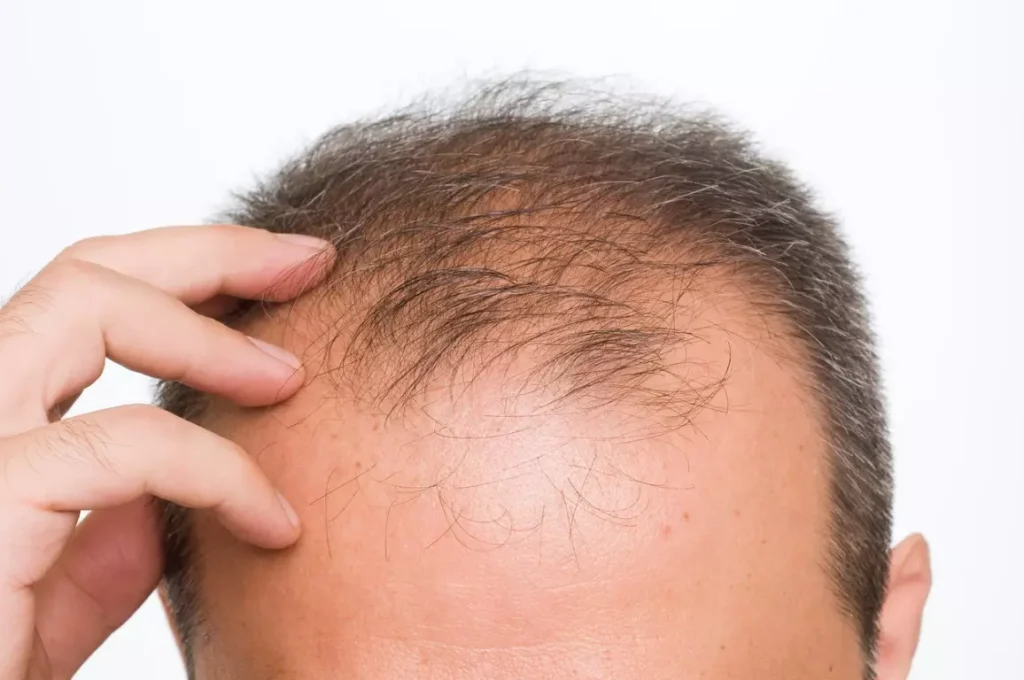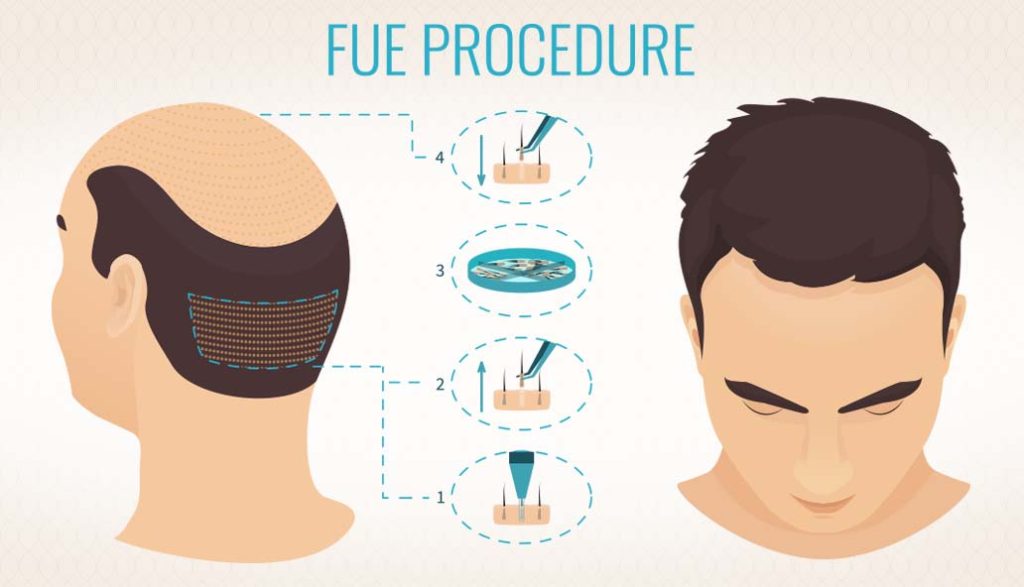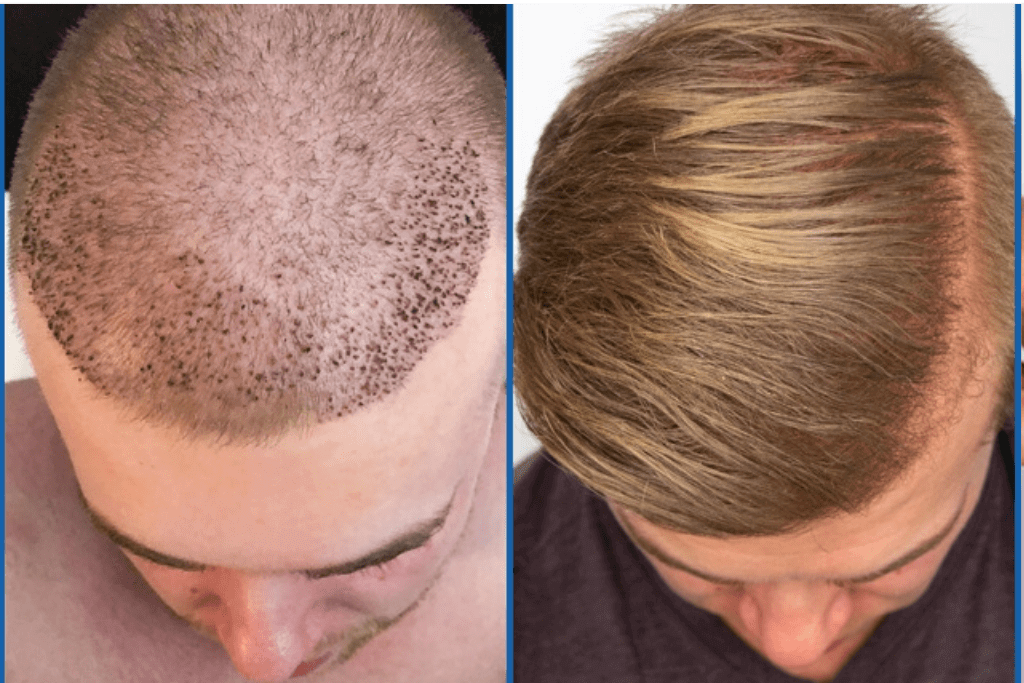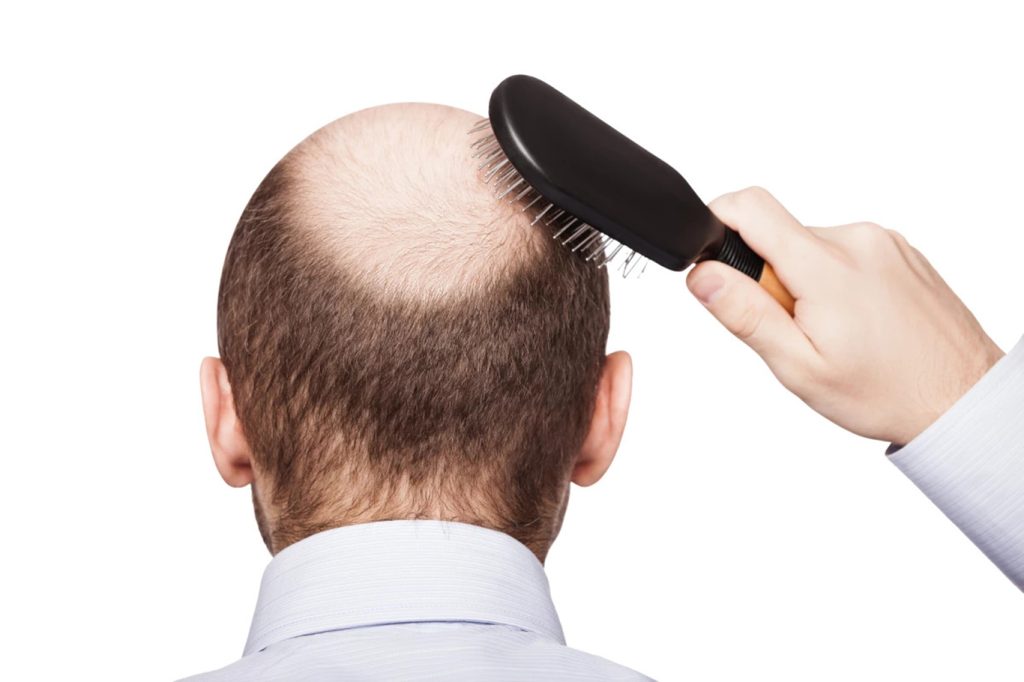After undergoing a hair transplant, one of the most common concerns for individuals is the ability to return to their normal routine, including work. The recovery process following a hair transplant can vary from person to person, but in general, most individuals can expect to go back to work within a few days to a week after the procedure. However, it’s important to follow the post-operative care instructions provided by your surgeon to ensure a smooth and successful recovery. In this blog, we will explore the factors that can affect the timing of returning to work after a hair transplant and provide helpful tips for a speedy recovery.
Timeline for Returning to Work After a Hair Transplant Surgery

Undergoing a hair transplant surgery is an important step towards regaining your confidence and achieving a fuller head of hair. However, it’s natural to wonder about the timeline for returning to work after the procedure. Here’s a detailed guide to help you understand the process:
Immediately After Surgery
After the hair transplantatiton surgery, it’s important to rest and allow your body to heal. You may experience some swelling and redness on your scalp, so it’s best to take a few days off from work to ensure a smooth recovery.
1 Week After Surgery
By the end of the first week, the initial healing process should have taken place. However, you may still have some scabbing and redness, which can make it noticeable that you’ve had a procedure done. At this point, it’s best to avoid any strenuous activities and continue to take time off from work.
2 Weeks After Surgery
As you approach the 2-week mark, the scabs and redness should start to subside, making it easier to conceal the fact that you’ve undergone a hair transplant. While you may still have some lingering signs of the procedure, you can consider returning to work at this stage, especially if your job doesn’t involve heavy physical activity.
3 Weeks After Surgery
At the 3-week mark, most of the visible signs of the surgery should have faded, and your scalp should be well on its way to looking normal again. This is a good time to resume your regular work routine, as long as it doesn’t involve activities that could potentially disrupt the healing process.
1 Month After Surgery
After a month, your scalp should be fully healed, and any residual redness or scabbing should be minimal or non-existent. By this time, you should feel comfortable and confident enough to fully return to work and engage in all regular activities without any restrictions.
It’s important to keep in mind that everyone’s healing process is different, and it’s crucial to follow your doctor’s recommendations for post-operative care. By allowing your body the proper time to heal, you can ensure the best results from your hair transplant surgery.
Factors to Consider When Planning Your Return to Work After a Hair Transplant

Undergoing a hair transplant is a big decision, and once the procedure is complete, many individuals look forward to returning to work with a renewed sense of confidence. However, planning your return to work after a hair transplant requires careful consideration of several factors to ensure a smooth and comfortable transition.
Physical Healing
One of the first and most important factors to consider is your physical healing. Hair transplant surgery involves the extraction and transplantation of hair follicles, which can result in some redness, swelling, and scabbing in the days following the procedure. It’s essential to give your body enough time to heal and for these side effects to subside before returning to work. Typically, this can take anywhere from 7 to 14 days, depending on the individual and the extent of the procedure.
Discomfort and Sensitivity
During the initial phase of recovery, it’s common to experience some discomfort and sensitivity in the donor and recipient areas. It’s important to assess your pain tolerance and ensure that you will be able to perform your job duties without undue discomfort. If your work involves significant physical activity or exposure to environmental factors that could exacerbate sensitivity, it may be necessary to take additional time off or modify your work responsibilities temporarily.
Appearance and Confidence
While the ultimate goal of a hair transplant is to improve your appearance and boost your confidence, it’s important to be prepared for the initial stages of healing, during which the transplanted hair may appear sparse or uneven. Consider whether you will be comfortable returning to work during this phase or if you would prefer to wait until the new hair begins to grow in more fully. Additionally, it may be helpful to plan for any supportive measures, such as hat wearing or temporary styling options, to help you feel more confident during this transition.
Planning Your Return
Once you’ve taken these factors into account, it’s essential to communicate with your employer about your return to work plan. This may involve discussing any necessary accommodations or a modified schedule during the initial recovery period. By proactively addressing these considerations, you can ensure a successful return to work experience and focus on the positive impact of your hair transplant results.
Tips for Managing Post-Transplant Recovery While Balancing Work Responsibilities
Recovering from a transplant surgery can be a challenging and lengthy process, especially when trying to balance the demands of work. It’s crucial to take care of your health and well-being while also meeting your professional responsibilities. Here are some tips to help manage your post-transplant recovery while juggling work commitments:
1. Communicate with Your Employer
One of the first steps in balancing work and recovery after a transplant is to communicate openly and honestly with your employer. Let them know about your surgery, your expected recovery timeline, and any potential limitations or accommodations you may need. This will help to manage expectations and ensure that you can work together to find a suitable arrangement.
2. Prioritize Self-Care
Recovery should be your top priority, so it’s essential to make time for self-care. This may involve following a specific medication schedule, attending regular medical appointments, and getting enough rest. Don’t hesitate to ask for support from friends, family, or colleagues when needed, and consider seeking professional help if you’re struggling emotionally or mentally.
3. Set Realistic Goals and Boundaries
While it’s important to remain dedicated to your job, it’s equally important to set realistic goals and boundaries for yourself. Recognize your limitations and avoid taking on more than you can handle during your recovery period. This might mean adjusting your workload, delegating tasks, or temporarily modifying your work schedule. Remember, it’s okay to ask for help and take things one step at a time.
By following these tips, you can navigate the challenges of post-transplant recovery while fulfilling your work responsibilities in a healthy and manageable way. Remember, your health should always come first, and with the right support and mindset, you can successfully strike a balance between your recovery and your professional life.
Discussing Your Return to Work Plan with Your Hair Transplant Surgeon

Returning to work after a hair transplant is an important consideration for many patients. It’s essential to discuss your return to work plan with your hair transplant surgeon to ensure that you have a smooth transition back to your professional responsibilities.
Factors to Consider
When discussing your return to work plan with your hair transplant surgeon, there are several factors to consider:
- Recovery Time: Your surgeon will be able to provide you with an estimate of the recovery time needed before you can safely return to work. This will depend on the type of hair transplant procedure you undergo and your individual healing process.
- Physical Restrictions: It’s important to understand any physical restrictions that may apply during the recovery period. Your surgeon can provide guidance on activities to avoid or limit to support proper healing.
- Appearance Concerns: Depending on the nature of your job and your personal comfort level, you may have concerns about your appearance during the early stages of recovery. Your surgeon can offer advice on how to manage any visible signs of the procedure.
Communication with Your Employer
It’s also important to communicate openly with your employer about your return to work plan. This may involve discussing any temporary accommodations that may be needed, such as modified duties or scheduling flexibility during the initial recovery phase.
Planning for the Long Term
Finally, it’s valuable to discuss the long-term impact of your hair transplant on your work schedule and professional image. Your surgeon can provide insights on managing ongoing maintenance and cosmetic concerns as they relate to your career.
| Return to Work Tips | Considerations |
|---|---|
| Follow Your Surgeon’s Guidelines | Recovery time, physical restrictions, and appearance concerns |
| Open Communication with Employer | Temporary accommodations and long-term planning |
By collaborating with your hair transplant surgeon and employer, you can develop a return to work plan that supports both your professional and personal well-being.
Potential Challenges and Solutions for Resuming Work After a Hair Transplant
Undergoing a hair transplant can be a life-changing experience, but it also comes with its own set of challenges, especially when it comes to returning to work. Here are some potential challenges you may face and the solutions to overcome them:
1. Managing Expectations
It’s important to manage your own expectations and those of your colleagues regarding the results of your hair transplant. Some people may have unrealistic expectations about how quickly your hair will grow back or how it will look. It’s important to have open and honest communication about the process and the expected timeline for results.
2. Dealing with Discomfort
After a hair transplant, you may experience some discomfort or pain, especially in the days immediately following the procedure. It’s important to have a plan in place for managing this discomfort while at work. This may involve taking pain medication as prescribed by your doctor, scheduling regular breaks to rest, and finding ways to minimize any physical strain on your scalp.
3. Addressing Questions and Curiosity
It’s natural for your colleagues to be curious about your hair transplant, and you may field a lot of questions upon your return to work. It’s important to decide in advance how you want to address these questions. You may choose to be open and honest about your experience, or you may prefer to keep the details private. Either way, having a prepared response can help you feel more comfortable in these conversations.
Exploring Flexible Work Arrangements during the Initial Recovery Period

As businesses and organizations navigate through the initial recovery period following the global pandemic, there has been a significant shift towards exploring flexible work arrangements. Employers and employees alike are re-evaluating traditional work structures and embracing new methods that prioritize flexibility and well-being.
One of the most prevalent flexible work arrangements being considered is remote work. Many companies have found that allowing employees to work from home not only ensures safety during uncertain times, but also promotes productivity and work-life balance. According to a recent survey by Harvard Business Review, 83% of employers believe that remote work is here to stay.
“The pandemic has forced a shift in perspective, and now more than ever, employers are recognizing the value of flexible work arrangements in attracting and retaining top talent.” – HR Executive
Another flexible work arrangement that is gaining momentum is the compressed workweek. This alternative schedule allows employees to work longer hours on fewer days, giving them additional days off. This not only provides employees with a better work-life balance, but also allows companies to operate with extended hours and increased productivity.
Exploring the Benefits of Flexible Work Arrangements
There are numerous benefits associated with embracing flexible work arrangements during the initial recovery period. These include:
| Benefits | Explanation |
|---|---|
| Improved Work-Life Balance | Flexible work arrangements enable employees to better manage personal and professional responsibilities. |
| Increased Productivity | Studies have shown that flexible work arrangements can lead to higher levels of productivity and employee satisfaction. |
| Talent Attraction and Retention | Companies offering flexible work arrangements are more likely to attract and retain top talent in the current job market. |
Overall, the exploration of flexible work arrangements during the initial recovery period presents an opportunity for organizations to adapt to the changing needs of their workforce while simultaneously reaping the benefits of increased productivity and employee satisfaction.
Addressing Work-related Concerns and Questions with Confidence After a Hair Transplant
Undergoing a hair transplant can be a life-changing experience, and for many individuals, it can significantly boost their confidence. However, returning to work after the procedure may bring about some concerns and questions from colleagues. This article aims to address some common work-related concerns and questions that individuals may have after a hair transplant, and provide tips on how to handle them with confidence.
Common Work-related Concerns After a Hair Transplant
- Appearance: Colleagues may notice the change in your appearance and may have questions about it. Emphasize the positive impact the hair transplant has had on your confidence and overall well-being.
- Recovery: Some individuals may worry about taking time off work for the procedure and recovery. Assure them that the recovery process was manageable and that you are now fully focused on work.
- Stigma: There may be a fear of judgment or stigma surrounding hair transplants. Educate colleagues about the procedure and how it is a common solution for hair loss.
Handling Work-related Questions with Confidence
It is important to approach work-related questions about your hair transplant with confidence and assertiveness. Here are some tips for addressing these questions effectively:
- Be Open: Be open and honest about your hair transplant experience. Share information about the procedure, the reasons behind your decision, and the positive impact it has had on your life.
- Emphasize Professionalism: While it’s okay to discuss your hair transplant, always maintain a professional demeanor. Keep the focus on your work and reassure colleagues that it has not affected your performance.
- Set Boundaries: If you feel uncomfortable discussing your hair transplant, politely let colleagues know that it is a personal matter. Redirect the conversation back to work-related topics.
By addressing work-related concerns and questions with confidence, individuals can navigate their return to work after a hair transplant with ease and assurance.
Frequently Asked Questions
How soon can I return to work after a hair transplant?
Most patients can return to work within 2-5 days after a hair transplant procedure.
Will people at work notice that I had a hair transplant?
The transplanted hair may initially appear thin and stubbly, but as it grows in, it will blend with your existing hair and look natural.
Are there any restrictions on activities at work after a hair transplant?
It is generally recommended to avoid strenuous activities, heavy lifting, and excessive sweating for at least 2 weeks after the procedure.
Can I wear a hat to work after a hair transplant?
It is best to avoid wearing hats or any headgear that may put pressure on the transplant area for the first few weeks after the procedure.
When can I expect to see full results at work after a hair transplant?
Full results from a hair transplant can usually be seen within 6-12 months, so coworkers may notice gradual improvement in your hair over time.
